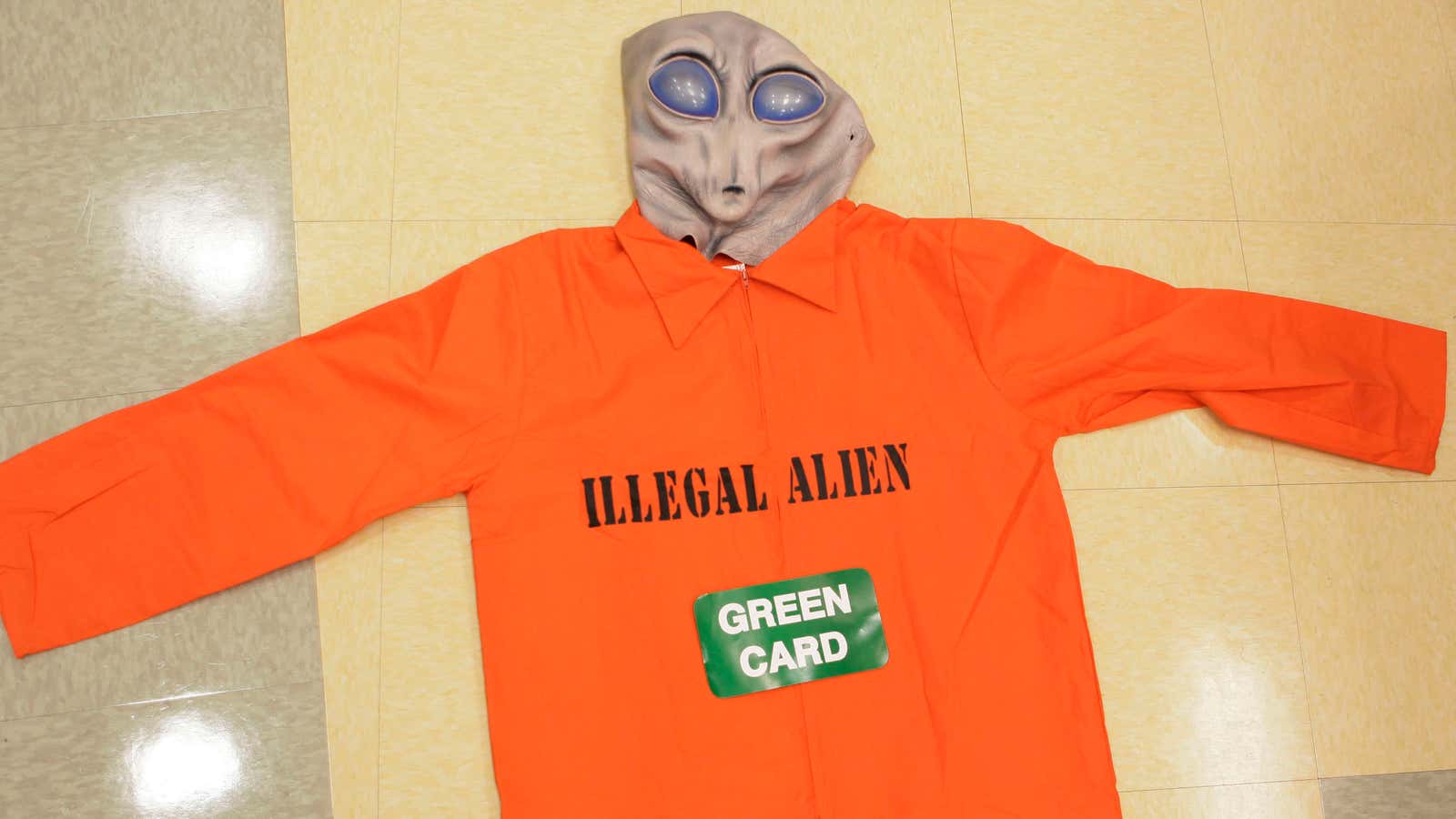The internet never forgets. And sometimes, it seems like society never learns.
Three years ago, in the column I was writing at the time for the Wall Street Journal, I unveiled a handy—and only slightly tongue-in-cheek—diagram designed to help Halloween revelers avoid costumes that would mark them as ignorant, insensitive or, in the worst case, racist. I called it SCREAM (paywall), which stands for the Simple Costume Racism Evaluation and Assessment Meter. SCREAM briefly went viral, but a few days after Halloween it was predictably sent into the dustbin of internet meme history.
Or so I thought.
A few weeks ago, a residential advisor at University of Massachusetts at Amherst posted SCREAM on a dormitory bulletin board as part of an attempt to encourage students to think twice before wearing costumes that include blackface, brownface, yellowface, redface or other poorly considered and almost certainly offensive cosmetic elements.
In an era when “political correctness” is seen by some as more problematic than actual racist behavior, the RA’s sensible suggestion that young people avoid costumes that could upset their peers—or compromise their personal and professional reputations—set off a thunderclap of conservative fury.
The right-wing student blog Campus Reform was possibly the first site to denounce the sign, blaming the school for “creating” a “costume threat level meter.” The story quickly spread across conservative media, however, and was picked up by the likes of Glenn Beck, Reason, the Washington Times, the Washington Free Beacon, and the Washington Examiner. It also surfaced on the white supremacist forum Stormfront.
The backlash led UMass Amherst to apologize, and remove the SCREAM posting as having “gone too far.” But as a fresh avalanche of obscenely racist Halloween costumes hits the internet, the real question may be whether SCREAM has gone far enough.
Actress Hilary Duff kicked off the annual controversy by appearing at a celebrity Halloween party dressed as a “sexy pilgrim” with her boyfriend, personal trainer Jason Walsh, in full Native American “war paint.” With the Chief Wahoo-sporting Cleveland Indians in the World Series and dozens of Native protesters being abused and arrested for protesting the Dakota Access Pipeline in Standing Rock, North Dakota, Walsh’s decision to appear in “injun chief” redface triggered a digital uproar muted only slightly by Duff’s seemingly heartfelt apology.
Meanwhile, Spirit Halloween—the pop-up pumpkin-season chain operated by Spencer Gifts—refuses to stop selling race-based outfits like its “Reservation Royalty” Indian, “Voodoo Queen” and the sombrero-wearing “Mexican Man.” Meanwhile, home-brewed blackface costumes are already popping up on Twitter, including a version of Bill Cosby that got University of Central Arkansas student Brock Denton expelled and his fraternity suspended.
Halloween is always going to be a hot zone for outbreaks of offensive behavior. The essence of the holiday, generating fear or laughter with inventive displays of self-transformation, is all too easily spoiled by thoughtless and careless individuals playing into lowest common denominator stereotypes. SCREAM was an attempt to get people to think twice before reducing human beings to nothing more than their most obvious features: melanin, mustaches, and mammaries.
But if the anti-PC brigades find a flowchart too restrictive this year, here’s an even even simpler two-step process that should help you avoid inadvertent hurt to others or humiliation to yourself:
- If you’re not sure whether your costume is offensive, check with someone who shares community with the person you’re dressing up as first to see if they find your costume to be an atrocity or an homage.
- If no one in your social network fits that description, don’t wear the costume. Anyone with zero black/Latino/Asian acquaintances who goes out on Halloween as a black/Latino/Asian person is 100% guaranteed to be making a huge mistake.
The good thing is that pop culture is finally offering an array of diverse and delightful costume ideas that won’t brand you as a racist jerk for wearing them. Case in point: In the place of generically offensive bucktoothed “Chinamen,” this year has seen a bumper crop of bat-bashed Walking Dead Glenn Rhees, complete with dangling eyeball.
And rather than the usual sexy geishas, there’s been a satisfying number of women dressed as standup superstar Ali Wong as she appeared in her Netflix special Baby Cobra, eight months pregnant and unstoppably raunchy. Maybe there’s hope for Halloween yet.
